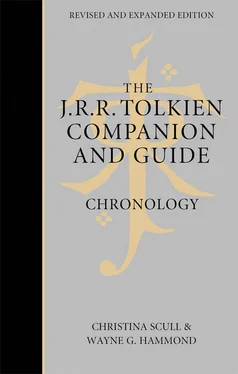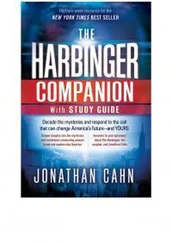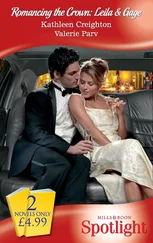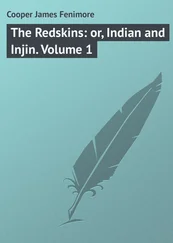February 1911As Debating Society Secretary, Ronald almost certainly writes the report of the meetings of the Society on 18 November, 2 and 16 December, and 27 January published in the King Edward’s School Chronicle for February 1911. As Football Secretary, he possibly also writes the report of matches published in the same number.
4 February 1911Ronald plays in a 1st XV away match against the University of Birmingham, at the University Ground. King Edward’s School loses, 0 to 14.
10 February 1911The King Edward’s School Debating Society addresses the motion: ‘That Slavery is a desirable social condition and that this House deplores its disappearance.’ (No reports of this or subsequent Debating Society meetings in February–March 1911 appear in the King Edward’s School Chronicle .)
14 February 1911Ronald plays in a 1st XV away match against Birkenhead School. King Edward’s School loses, 6 to 14.
17 February 1911At a meeting of the King Edward’s School Literary Society Ronald reads a paper on the Norse sagas. According to the King Edward’s School Chronicle , he considers the Völsunga Saga one of the best of them, and though it is inferior to Homer in most respects, in some it excels: ‘There is no scene in Homer like the final tragedy of Sigurd and Brynhild’ (‘Literary Society’, n.s. 26, no. 186 (March 1911), p. 19). The paper concludes with a sketch of the Norse religion and quotations from various sagas.
24 February 1911The King Edward’s School Debating Society addresses the motion: ‘This House would welcome the establishment of a Central Imperial Parliament.’
March 1911Ronald writes a poem, * The Battle of the Eastern Field , a humorous account of a football match. It will be published in the King Edward’s School Chronicle for this month. As Football Secretary, he possibly also writes the report of matches published in the same number of the Chronicle .
8–9 March 1911Through an estate agent, Jane Neave bids for property in Gedling. She is the high bidder for Church Farm (later called Phoenix Farm), but must give the current tenant, farmer Arthur Lamb, one year to leave.
10 March 1911Ronald takes part in a Latin debate, in the role of ‘T. Portorius Acer Germanicus’. He will write a report in Latin entitled Acta Senatus , to be published in the King Edward’s School Chronicle for March 1911. The editorial for this number will note that pupils ‘are reminded by the ever active Secretary of the Debating Society’, i.e. Ronald Tolkien, about the forthcoming Open Debate (p. 17).
13 March 1911W.H. Payton reads a paper on Charles Lamb at a meeting of the King Edward’s School Literary Society.
15 March 1911The King Edward’s School Officers Training Corps participates in a field exercise with cadets from other neighbouring schools and the University of Birmingham. The King Edward’s School cadets go by train to Northfield, south of Birmingham proper, and thence to Ley Hill, where they take part in an attack on another group’s position on Griffin’s Hill. The weather is bitterly cold, indeed the exercise is halted for half an hour by a storm of sleet. Later the cadets march to the University refectory, accompanied by a band, and have tea. The King Edward’s School contingent is so cheered that it insists on marching back to the School instead of taking the train.
17 March 1911R.W. Reynolds reads a paper, ‘Powder and Jam’, on once-popular literature meant to instruct and amuse, to a meeting of the King Edward’s School Literary Society.
18 March 1911Ronald takes part in a 1st XV away match at Bromsgrove, against Bromsgrove School. King Edward’s School loses, 3 to 8. This is Ronald’s last game for the school. In the King Edward’s School Chronicle a report will sum up his contribution to the team during 1910–11: ‘A light forward, who possesses pace and dash, and is a good dribble. He has done much good individual work, especially in breaking away from the scrum to assist the three-quarters. His tackling is always reliable, and he follows up hard. Has been a most capable and energetic Secretary. Captain of Measures’’ (n.s. 26, no. 187 (June 1911), p. 49). In addition to the games played against teams from other schools or colleges Ronald has also played in inter-house football matches: these are not reported in the Chronicle but in 1910–11 Measures’ House played six games as well as a play-off when it tied with another house.
31 March 1911Six short papers are presented by students at a meeting of the King Edward’s School Literary Society. These include one by Christopher Wiseman on the Birmingham printer John Baskerville; a paper by Sidney Barrowclough ( in absentia ) on Birmingham historian William Hutton; and one by R.S. Payton on the writer Walter White.
4 April 1911Ronald takes part in the annual Open Debate. The motion is: ‘That the works attributed to William Shakespeare were written by Francis Bacon.’ He speaks in favour, pouring
a sudden flood of unqualified abuse upon Shakespeare, upon his filthy birthplace, his squalid surroundings and his sordid character. He declared that to believe that so great a genius arose in such circumstances commits us to the belief that a fair-haired European infant could have a woolly-haired prognathous Papuan parent. After adducing a mass of further detail in support of the Hon. Opener, he gave a sketch of Bacon’s life and the manner in which it fitted into the production of the plays, and concluded with another string of epithets.
Among other speakers, Rob Gilson is ‘astonished that the firmly established tradition which had satisfied English people for close on 300 years should now be set so lightly aside. Never indeed had any secret been so well kept as that of Bacon’s if his was the authorship’ (‘Debating Society’, King Edward’s School Chronicle n.s. 26, no. 187 (June 1911), pp. 43, 44). T.K. Barnsley speaks in opposition to Ronald; W.H. Payton argues that the author of Shakespeare’s plays was a lawyer; Christopher Wiseman scarcely believes in Shakespeare but does not think it proved that Bacon wrote his plays; and Rob Gilson likewise argues eloquently in the negative. The motion fails, 37 votes to 52. As Debating Society Secretary Ronald thanks R.W. Reynolds, the Vice President, for all that he has done for the Society.
27 April 1911Christopher Wiseman writes to Ronald (addressing him as ‘Gabriel’, one of his nicknames) after hearing that he has been appointed Librarian at King Edward’s School. Wiseman will be a Sub-Librarian, and intends to ask their friend Vincent Trought to become one too.
Summer term 1911Much of this term is taken up by examinations spread over six weeks. Between the exams the pupils have much spare time, even allowing for revision. Some of the senior boys – Sidney Barrowclough, Rob Gilson, R.S. Payton, W.H. Payton, Ronald Tolkien, Vincent Trought, and Christopher Wiseman – form an unofficial group called the Tea Club. They make tea for themselves in the King Edward’s School library cubby-hole and (against the rules) bring in food. Later and especially during vacation they meet in the Tea Room at Barrow’s Stores in Corporation Street, Birmingham; they have a favourite secluded table between two settles which they name the Railway Carriage, and now call themselves the Barrovian Society after ‘Barrow’s’. The most important members of the ‘T.C.B.S.’ (Tea Club, Barrovian Society), as the group becomes, will be Ronald, Rob Gilson, Christopher Wiseman, and eventually G.B. Smith, who will remain closely associated when other members drift away. – As a member of the Officers Training Corps Ronald takes part in drills and in the House competition for the Drill Cup.
Читать дальше












